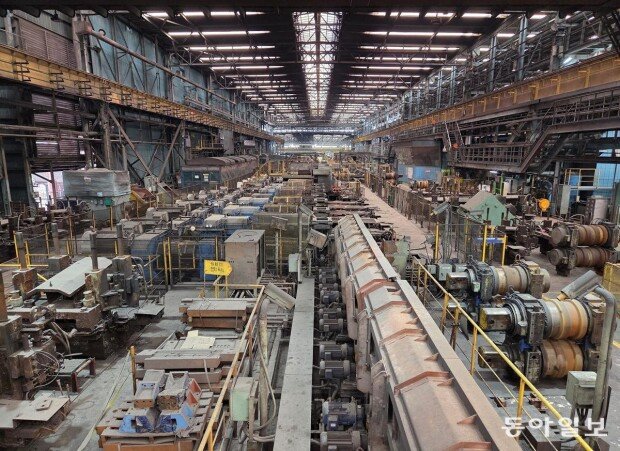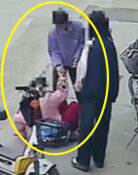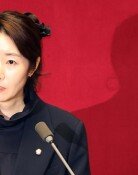Steel city chills as Korea’s core industries falter
Steel city chills as Korea’s core industries falter
Posted April. 24, 2025 08:06,
Updated April. 24, 2025 08:06

Once humming with heat and energy, POSCO’s Wire Rod Plant No. 1 in Pohang, North Gyeongsang Province, now stands silent and cold. A 60-year-old worker who spent more than four decades at the plant recently showed a Dong-A Ilbo reporter where the final shipment of coils had once sat. Gazing at the now-empty space that had been filled with two-ton wire rod coils, he said he planned to retire at the end of this year.
The plant, which produced 700,000 tons of wire rods annually for use in tire reinforcement and other applications, ceased operations last November. It was the third plant POSCO had closed due to management difficulties since its founding in 1968.
But the chill settling over Pohang, known as South Korea’s “City of Steel,” is not confined to this single city. The nation’s three core manufacturing sectors—batteries, petrochemicals, and steel—are all facing an existential crisis. Highly interdependent with downstream industries, these sectors are often referred to as the backbone of Korean industry.
Weighed down by high interest rates, a prolonged economic slump, and a flood of cheap Chinese imports, the three industries have already endured a historic downturn. Now, steep U.S. tariffs have pushed them to the brink.
An analysis of 2024 business reports from South Korea’s top 100 listed manufacturers by asset size shows just how dire the situation has become. The average operating profit in the battery, petrochemical, and steel sectors dropped to 250 billion won last year—a 66% decline from the previous year’s 719.7 billion won. Battery firms (five companies) posted a 97.5% drop, while petrochemical companies (14) and steelmakers (six) recorded declines of 64.5% and 46.4%, respectively. These declines sharply contrast with a 79.1% average operating profit increase across the top 100 manufacturers overall.
“While countries around the world are ramping up support for their manufacturing sectors and engaging in increasingly unfair competition, South Korean companies—75% of whose revenues come from exports—are left to fight alone,” said Shin Ho-jung, a business professor at Korea University. “It’s time for Korea’s political leadership to speak with one voice and step up to support domestic industry.”
Jae-Hyeng Kim monami@donga.com







